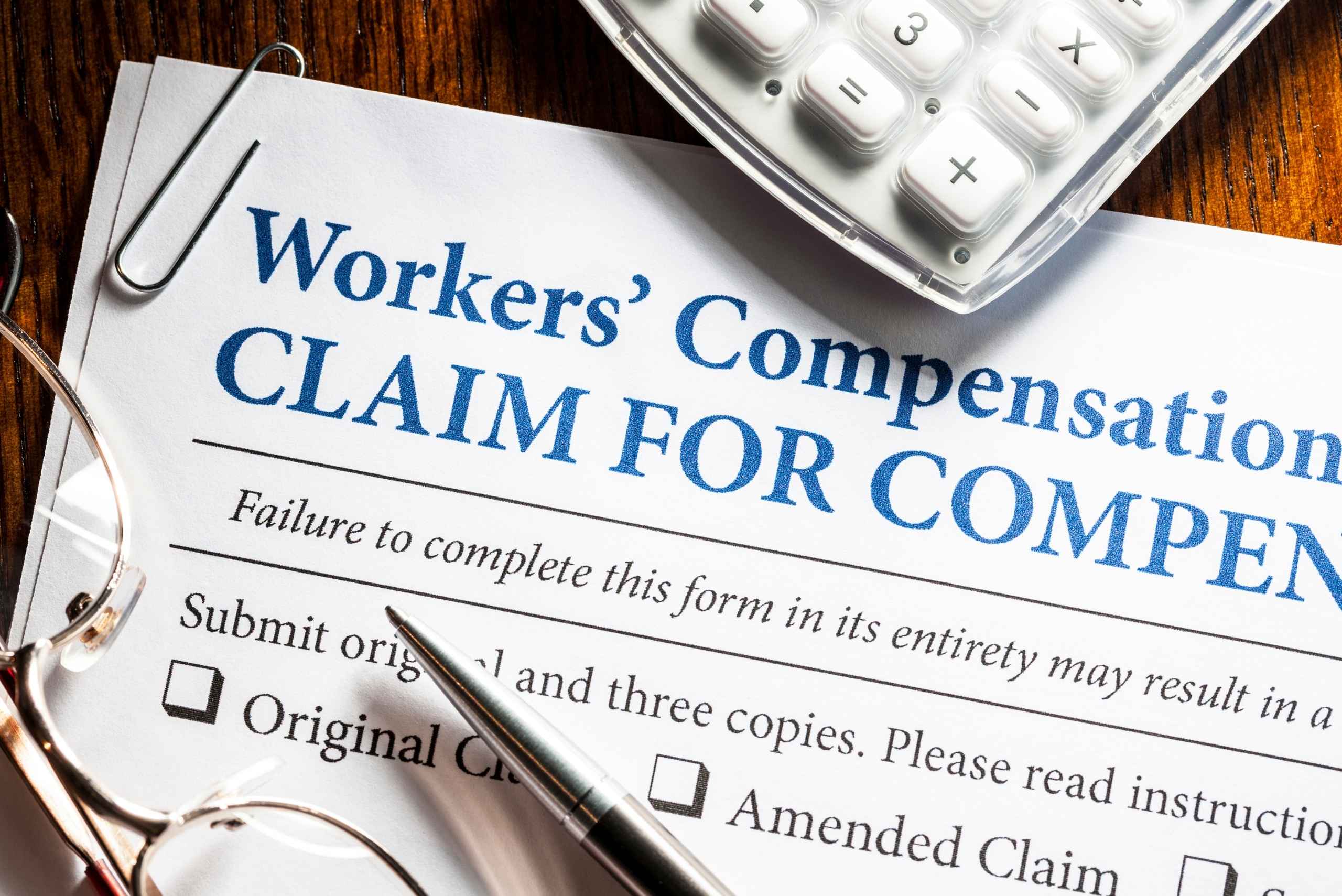After you suffer a long-term workers’ comp injury, your doctor will eventually assess you for maximum medical improvement (MMI). This means your doctor believes your condition is highly unlikely to improve further. Reaching MMI ends your temporary workers’ compensation benefits and begins the process of switching to permanent disability benefits. An experienced New York workers’ compensation attorney can help you appeal an MMI decision if necessary.
Quick Links
- What Is Maximum Medical Improvement (MMI)?
- Process of Determining MMI in New York
- Implications of Reaching MMI on Workers’ Compensation Benefits
- Legal and Employment Considerations Post-MMI
- Steps To Take Upon Reaching MMI
- When Should I Appeal an MMI Determination?
- Why Choose Meirowitz & Wasserberg for Your New York Workers’ Compensation Case?
- Recent Settlements & Verdicts
- What Our Clients Are Saying
- Frequently Asked Questions (FAQs)
- Consult a Workers’ Compensation Lawyer in New York
What is maximum medical improvement?
"There are two types of benefits you can receive. One is temporary benefits, which you get while you’re out of work. During this time, the goal of medical treatment is to improve your condition, improve your function, and help you return to the workforce. There comes a point where you’ve maybe tried every treatment option or you may not want to take the next step. For example, you might have had surgeries and aren’t going to get better, or you’re not willing to undergo further surgery. At that point, you reach what’s called maximum medical improvement. If you’re still injured at that point, the injury is considered permanent, and you would then be eligible for a permanent disability benefit, especially if you're still out of work or earning less than you did before. "Brian Russell
What Is Maximum Medical Improvement (MMI)?
MMI is the point of recovery after a workers’ compensation injury when doctors believe a person’s condition is unlikely to improve further.
Reaching MMI doesn’t necessarily mean you have fully recovered from your injury or that your condition has returned to normal. Rather, it indicates your provider believes further treatment would not bring improvement. Therefore, treatment will aim to maintain your condition at its current level.
The New York Workers’ Compensation Board’s MMI guidelines state that MMI is presumed to occur no more than two years after the date of the injury.
Process of Determining MMI in New York
Your treating physician plays a key role in identifying when you’ve reached MMI based on your recovery progress and medical needs. Your doctor will submit Form C-4.3 to the Board to document this determination, and the report will be shared with your employer’s workers’ compensation insurer.
If the insurer disagrees with your doctor’s MMI determination, it may request an independent medical examination (IME). The IME provides a second opinion but does not automatically overrule your treating doctor’s findings. If there’s a conflict between medical opinions, the Board may schedule a hearing and make the final decision after reviewing the evidence.
The Board considers all medical evidence, both from treating doctors and IMEs, before making a legal finding about disability classification. If you disagree with the MMI-related outcome, you can work with your attorney to challenge the decision through the appeals process.
Implications of Reaching MMI on Workers' Compensation Benefits
Reaching MMI changes the workers’ compensation benefits you’re entitled to.
Transition From Temporary to Permanent Benefits
After a workplace injury, you may receive temporary disability benefits while recovering. These benefits do not automatically end when you reach MMI or return to work. Instead, they typically continue until a Workers’ Compensation Law Judge issues a legal classification of your condition based on the medical evidence provided.
Once MMI is established, your claim may move toward a determination of permanent disability.
There are two primary types of permanent disability benefits:
- Permanent Total Disability (PTD): You are considered permanently unable to work in any capacity. These benefits can continue for life.
- Permanent Partial Disability (PPD): You have a lasting impairment but retain some ability to work. If your condition involves body parts not covered by the Schedule Loss of Use (SLU) system, such as the back, neck, or internal organs, your benefits will be classified as non-schedule, with the duration based on your loss of wage earning capacity (LWEC). This can range from 225 to 525 weeks. If your impairment involves an arm, leg, hand, foot, eye, or hearing, you may receive a schedule award with compensation tied to a statutory number of weeks based on the degree of loss.
Permanent Disability Evaluation
After your provider finds you’ve reached MMI, an evaluation of your condition will determine the type of permanent benefits you can receive. This involves the assessment of extensive medical evidence, including your complete treatment records, and may also include an IME. The process of qualifying for PTD benefits may involve functional capacity evaluations, vocational assessments, and other analyses of your ability to work, depending on the specifics of your case.
Continued Medical Care
Even after you are found to have reached MMI, you may still be eligible for ongoing medical care through workers’ compensation. Although MMI indicates no further curative treatment is expected, care that is palliative, symptomatic, or helps maintain your condition may still be covered, so long as it is medically necessary and causally related to your work-related injury.
Legal and Employment Considerations Post-MMI
There are a number of legal and employment matters to consider after you’ve received a finding of MMI. These include:
- Return-to-Work Policies: Your workplace will likely have specific policies regarding return-to-work processes for injured and disabled employees. Reviewing your employer’s return-to-work policy can help you understand whether and how you can return to work.
- Settlement Opportunities: You may be eligible to receive further compensation through a workers’ compensation settlement. Talk to a workers’ comp attorney about your legal options to determine whether a settlement could be possible.
- Dispute Resolution: If you have problems with your workers’ comp claim or your MMI determination, you may have to enter a dispute resolution process with your employer. If you have a dispute with your employer, you should speak to an attorney as soon as possible to make sure you have legal representation.
Steps To Take Upon Reaching MMI
Once you’ve reached MMI, there are some key steps to take to promote your health and recovery and protect your financial stability:
- Medical and Legal Consultations: Talking to your medical providers can help you determine what MMI means in your case and whether a finding of MMI is appropriate. Working with an experienced workers’ compensation attorney can also help you understand your legal rights and appeal an MMI determination if appropriate.
- Vocational Rehabilitation: Reaching MMI doesn’t always mean that you can return to your original work. If your injury has left you partially disabled, vocational rehabilitation can help you build new skills and prepare to transition to a new role.
- Financial Planning: Making a plan for financial changes you may experience after reaching MMI, such as reduced benefits income or switching to part-time work, is a major part of managing the MMI transition smoothly. Working with a financial planner can help you determine what your finances will look like after MMI and how to handle them responsibly.
When Should I Appeal an MMI Determination?
When it’s decided you’ve reached MMI, workers’ compensation is no longer obligated to cover health care aimed at improving your condition. This means your workers’ comp benefits will be diminished, and you won’t have coverage for many kinds of care you may still need.
If you believe your doctor’s determination that you’ve reached MMI was wrong, you can appeal the determination. This can help you protect your health care benefits and maintain access to care with the potential to recover further from your current condition.
A workers’ compensation attorney can guide you through filing an MMI appeal. This process often involves introducing new medical evidence, including additional medical examinations by alternative providers. Your attorney will explain your options and represent you in a hearing before an administrative law judge if necessary.
Why Choose Meirowitz & Wasserberg for Your New York Workers' Compensation Case?
Meirowitz & Wasserberg is a nationally recognized mesothelioma and personal injury law firm composed of award-winning trial attorneys. We have successfully handled hundreds of workers’ compensation lawsuits and recovered over $500 million in verdicts and settlements on behalf of our clients.
Our attorneys have extensive experience with many types of injury cases and have developed a vast knowledge of New York personal injury law. We’re proud of our skill in the courtroom and the excellent results we’ve secured for clients over our more than 10 years in business. Recognitions and awards our attorneys have received include consistent Super Lawyers appearances since 2016 and placement on lists such as the National Trial Lawyers’ “Top 100 Trial Lawyers” and “Top 100 Civil Litigators.”
As a firm, we prioritize communication with clients and personalized attention to every case we handle. Our mission is to give a voice to the voiceless and level the playing field between the average person and large corporations.
Recent Settlements & Verdicts
Our attorneys have built a strong track record of securing significant case results for our clients. Recent settlements and verdicts we’ve achieved for clients include:
- $205,000 for a construction worker who fell off a ladder while on the job
- $212,000 for a 9/11 cleanup volunteer who suffered adverse health impacts from the site
- $175,000 for a bus driver injured while driving
- $125,000 for a cleaner who suffered a slip and fall accident at work
No matter the field you’re employed in or the type of injury you suffered, our New York workers’ compensation attorneys can help.
What Our Clients Are Saying
The accolades we’re proudest of come from our many satisfied clients. Hear what they have to say about the quality of our representation.
Frequently Asked Questions (FAQs)
Common questions we receive about MMI and workers’ compensation in New York include:
What Does Reaching MMI Mean for My Workers' Compensation Benefits?
Reaching MMI means your doctor believes your condition has improved as much as it is expected to. This does not automatically change your benefit status. Instead, once you reach MMI, the Board may begin the process of evaluating whether you have a permanent disability and, if so, whether it qualifies as a permanent total or permanent partial disability. The type and duration of benefits you may receive will depend on the nature and severity of your condition, as determined by medical evidence and legal classification.
Can I Continue To Receive Medical Treatment After Reaching MMI?
Yes, you can still receive medical treatment after reaching MMI. However, once MMI has been reached, workers’ compensation benefits generally cover treatment and medication necessary to maintain your condition, rather than improve it. That said, the need for palliative or symptomatic treatment does not prevent a finding of MMI, and such treatment may still be covered if medically necessary.
How Is Permanent Disability Determined Following MMI?
Permanent disability is evaluated based on your medical records and the findings of your treating doctor and any IMEs. These evaluations focus on your impairment, which refers to a lasting medical condition or functional loss. In some cases, particularly for non-schedule disabilities, the Board will also consider how your condition affects your wage earning capacity.
What Are My Options if I Disagree With the MMI Determination?
If you disagree with an MMI determination, you or your insurer can appeal the decision to an ALJ. The ALJ will assess your claim and all relevant medical evidence to determine whether you have reached MMI. A workers’ compensation attorney can help you through the MMI appeals process to maximize your chances of a favorable decision.
Is It Possible To Return To Work After Reaching MMI? What Accommodations Might Be Available?
You may be able to return to work after reaching MMI. However, you may be unable to work in your former role or previous field due to your injury. If you can return to work, your employer may offer you disability accommodations that enable you to continue doing your job. These could include modified hours, lighter job responsibilities, or a different work environment. Talk to an attorney about what accommodations might be appropriate for you if you can return to work.
Consult a Workers' Compensation Lawyer in New York
If you’re dealing with the MMI process, you’re not alone. The process can seem inscrutable, and insurers may fight to deny you the compensation you rightfully deserve. The diligent New York workers’ compensation attorneys at Meirowitz & Wasserberg can help. Call 281-915-1388 or reach out online today for your free legal consultation.



